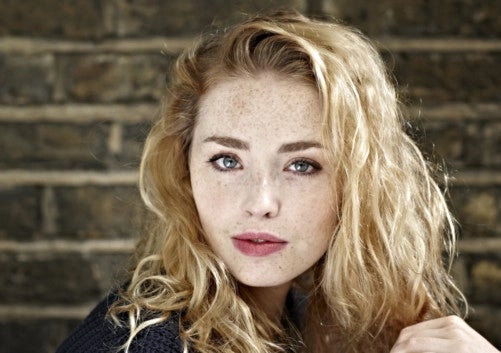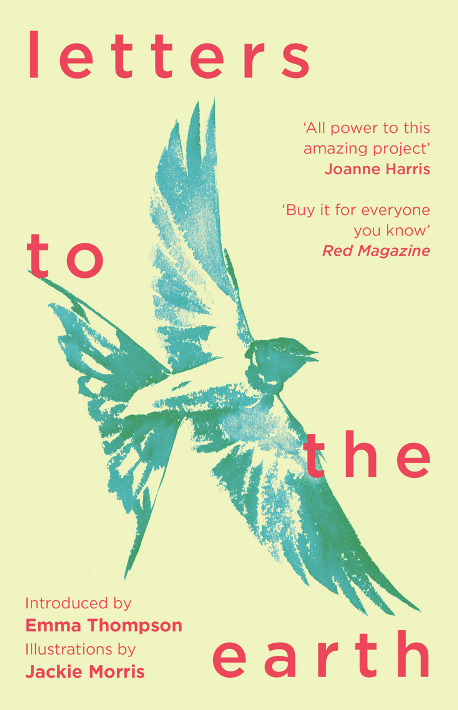Harper Collins is publishing Letters to the Earth: Writing to a Planet in Crisis, in response to the climate crisis in this age of Covid. Two years after Letters to the Earth was created from an idea, the launch of the paperback edition feels timely, because 2021 might prove to be an important year for climate action, with events leading up to Earth Day (April 22nd), D10 summit (formerly G7) in Cornwall (June 9-11), and the UN Climate Change Conference known as COP26 (in November).
Freya Mavor is best known for playing Mini McGuinness in the hit British drama Skins, so we asked her three questions about her commitment to the cause.
At a time when so many people are obsessing over the collapse of the earth, why do you feel something good is going to happen?
I think for me this line has a number of meanings.
One of them being that whilst we are living through urgent and scary times, there is in this an opportunity for the good in humanity to shine through. We can empirically witness that change IS possible—and on a mass scale. Climate activism has often been met with rejection from businesses and governments to the idea that the world could ever adapt so drastically, yet this pandemic has shown us the system is capable of completely changing its structure.
It is a shame that it has taken this devastating situation to do this. To experience this seismic shift could be a call to reflect on our broken systems, and an opportunity to reassess how we can and want to function as a society. It is a way to think more about the world—its people and interdependence—rather than focus so much on our own individual lives.
This brings me to another meaning—our human capacity to care and love, and to witness and respect the beauty and goodness in our world. It may sound frothy, but this strange time has shown us the importance of relationships, connection, and it has offered a different rhythm and lens with which to experience the world.
I am reminded of the beginning of a poem by David Whyte:
Your great mistake is to act the drama / as if you were alone. As if life /
were a progressive and cunning crime / with no witness to the tiny hidden / transgressions.
I suppose this is what I meant when I wrote that line. It speaks to the seed of hope in me, and the seed of hope I have in humanity.
Can you share with us some of the personal choices you have made in recent years that will help to preserve the earth’s natural ecosystems?
In recent years I have become a lot more climate conscious and aware of my responsibility and my privileged position as a white Westerner.
I believe that systemic change is needed in order to create the conditions for people to be able to make more climate conscious choices, especially those dealing with more immediate problems living in economic poverty or in the Global South who are already feeling the effects of climate change.
My personal choices to adapt my lifestyle include food consumption—I am vegetarian, with a mostly vegan diet. Travel: I cycle and am committed to flying as little as possible, travelling by land when I can. One of my flatmates (Emily Tulloh) works as Climate Engagement Lead for a London Council, and together we are looking at ways to adapt our lives and try to reduce our carbon footprint. This includes changing our consumer behavior, ethical banking, engaging in climate activism, civil disobedience and protesting for causes we believe in, shopping locally, learning and reading about the climate crisis, donating to Green incentives and charities etc.
I want to emphasize however that I realize these changes come with a degree of privilege that’s perhaps not affordable to everyone. Although personal change has a part to play, in order to truly create a greener society and tackle the crisis we need leaders who will commit to our ecological responsibility and make changing consumer and societal behavior as easy and affordable as possible.
With the growing global awareness of ecological disasters, and the ongoing effects of the current coronavirus pandemic, are you optimistic that humans will change their ways?
To the point I made earlier, I believe that climate justice equals social justice. We live in a world where those least responsible for the climate crisis are the most affected. The onus is on governments and institutions to create the conditions for everyone to be able to make more ecological choices. Not everyone has the luxury or privilege to adapt their lifestyle and prioritize the climate when they are dealing with more immediate problems (economic, racial, systemic).
There are incredible benefits to living in a low carbon society, but this change requires a lot of time, resources, courage and deconstruction of our ‘business as usual’ model.
I believe we are in a golden age of activism, and that the causes for social and climate justice are connected. Our greatest power is not as individuals or consumers, but in collective action and community. We see this with the BLM protests, the school strikes, the #MeToo movement, Extinction Rebellion, the Hong Kong protests and many more…
To answer the question, I feel ‘optimistic’ might not be the word I’d use. Optimism to me can sometimes suggest blind hope—closing your eyes and wishing for the best—whereas this situation requires we look at the hard stuff. That we examine our behavior, our history and our future, and act with compassion and courage in the face of hardship.


